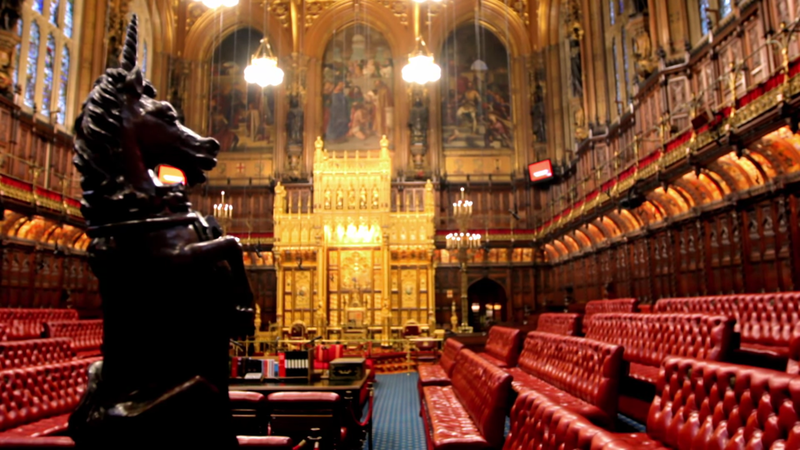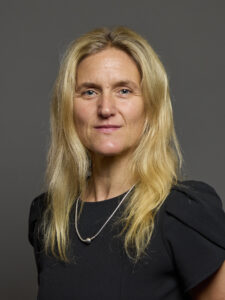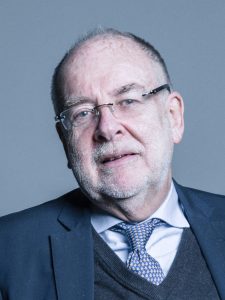 The House of Lords Select Committee on the Terminally Ill Adults (End of Life Bill) held the first oral evidence sessions today, where it heard overwhelmingly that patient choice and autonomy are enhanced by the introduction of assisted dying. The Bill sponsors and three representatives from Royal Colleges all said that patients will be able to make more decisions about the end of their lives.
The House of Lords Select Committee on the Terminally Ill Adults (End of Life Bill) held the first oral evidence sessions today, where it heard overwhelmingly that patient choice and autonomy are enhanced by the introduction of assisted dying. The Bill sponsors and three representatives from Royal Colleges all said that patients will be able to make more decisions about the end of their lives.
It has been reported that the committee is weighted against assisted dying, with more opponents of legislative change than supporters. My Death, My Decision analysis suggests that, apart from the Bill Sponsors, the experts so far called to give evidence consist only of those who are neutral or opposed to the current Bill.
Both Kim Leadbeater MP and Lord Falconer raised the case of Louise Shackleton, who was investigated for 10 months for accompanying her husband to Switzerland for an assisted death.
 The Bill sponsor in the Commons, Kim Leadbeater MP, told the Committee:
The Bill sponsor in the Commons, Kim Leadbeater MP, told the Committee:
‘If we look at the legal framework that the Bill sets out, we have two independent doctors. We have a multidisciplinary panel including a legal expert, a psychiatrist and a social worker. We have judicial oversight through the Voluntary Assisted Dying Commissioner. We have five separate assessments of the person’s eligibility.
‘There is a requirement that the person is given all options that are available to them in their dying days. We have a compulsory psychiatric assessment if either doctor has any doubts about the person’s capacity. We have access to independent advocates. We have a Disability Advisory Board. We have new criminal offences, including around coercion.
‘We have specific training on mental capacity and on identifying domestic abuse, coercive control, and financial abuse for all doctors and all panel members. And we have rigorous oversight and reporting mechanisms requiring the involvement of the Chief Medical Officers and reports to Parliament.
‘None of that exists at the moment. So, in terms of safeguards, am I clear that this would be the safest piece of legislation in the world? One hundred per cent.’

The Bill sponsor in the Lords, Lord Falconer of Thoroton, told the Committee:
‘On the basis of the support we’ve received from officials, we have no doubt the Bill is workable. Experience from other jurisdictions confirms that expectation. This Bill builds on the extensive work done on this subject in both houses over the years. We have the benefit of learning from over 30 other jurisdictions who’ve made the change. Indeed, around 300 million people around the world have access to a legally assisted death. Bills to change the law have been introduced in Scotland and the Isle of Man. Reform is coming.
‘The current law in this jurisdiction is simply not fit for purpose. Just last week, Louise Shackleton found that having accompanied her husband to Dignitas, she faced 10 months of criminal investigation. Do people deserve this on top of their grief and loss?
‘Finally, constitutionally, at the heart of our parliamentary democracy is the primacy of the Commons, because they are elected and we are not. Ultimately, it is for the Commons to make the decisions on assisted dying. It’s not for us, secular or spiritual, to make the key political decisions on this issue. We should not assert that we know better.’
Professor Mumtaz Patel, President at the Royal College of Physicians, told the Committee:
‘The Royal College of Physicians takes a neutral stance. However, we continue to have concerns around the practical elements of the Bill. What is good about the Bill, as you asked, is that patient choice is always wonderful, and we want to support patient autonomy around end-of-life care is really, really important.’
Dr Michael Mulholland, Honorary Secretary at Royal College of General Practitioners, told the Committee:
‘At the College, we’re pleased that patients are going to have the ability to make decisions for their own choice and their own health and their own death. And that’s something in general practice we’ve always been keen on. And we have discussions as people approach their death as to where they want to die, how they want to, if they have that ability to plan in advance, and we have.
‘As a College, we moved from a position against to a position neither for nor against, but wanting to support our patients and our colleagues because we recognise the divide across the country and in the profession as to those who are for, against here, the process and what we.’
Professor Nicola Ranger, General Secretary and Chief Executive at Royal College of Nursing, told the Committee:
‘The Bill will never cover anything, but the principle is the respect for autonomy. When we get it wrong in healthcare, it’s often because we are being paternalistic… The underlying basis of the College and of individuals is that autonomy must be the bedrock of decisions. We must not have such a high threshold that the principle of autonomy is lost.’
Where do the other Royal Colleges and medical bodies stand on assisted dying?
One of the biggest differences between now and the 2015 Assisted Dying Bill is that all of the Royal Colleges have ended their opposition to assisted dying and moved to a position of neutrality. The British Medical Association (BMA) also ended their opposition and moved to a neutral position in 2021.
Who else will provide evidence?
Tomorrow, the Select Committee will hear first about the workability of the panel that will examine each assisted dying case. As introduced in the Commons, a multidisciplinary panel consisting of a senior lawyer, social worker, and psychiatrist, overseen by a High Court judge, will sign off on each case after two independent doctors have assessed the patient. Dr Annabel Price will provide evidence on behalf of the Royal College of Psychiatrists (RCPsych), and Luke Geoghegan will represent the British Association of Social Workers.
The second session will hear from Dr Suzy Lishman (Lead on Medical Examiners at Royal College of Pathologists), Professor Aidan Fowler (National Director of Patient Safety at NHS England), and HHJ Thomas Teague KC (Former Chief Coroner of England and Wales at HMCTS).
The committee will take three further days of oral evidence. The sessions on Wednesday 29 October will focus on social and palliative care. The programme for the sessions on Thursday 30 October and Wednesday 5 November has not yet been published. My Death, My Decision and Humanists UK are calling for at least one session to be dedicated to the experiences of terminally ill adults.
What happens next?
The Select Committee will not produce a report or make recommendations, but will take and publish oral evidence. The Select Committee will conclude by 7 November, and the Bill will then progress to its Committee Stage for detailed line-by-line scrutiny.
The Bill will need to complete its passage through parliament by Spring 2026.
Richy Thompson, Director of Public Affairs at Humanists UK, said:
‘Every single individual who gave evidence to the Select Committee today raised the importance of patient autonomy, of allowing terminally ill adults to be able to make decisions about the end of their life gives them an incredible amount of relief and control in their final days.
‘There was also further testimony that the status quo is unworkable; it leads to unnecessary suffering, painful suicides, and people fleeing their own country to take control of their deaths. We hope that peers recognise and listen to the lived experience of the terminally ill and understand why the law must change.’
Dave Sowry, Board Member of My Death, My Decision, said:
‘We were pleased to see that today has focused on the importance of patients’ own decision-making. We know from international evidence that giving terminally ill patients a choice at the end of their lives has a palliative effect; they can focus on their family and the things that matter without worrying about pain or distress in their final days.
‘We hope the Select Committee takes evidence from the most important people this debate is centred around, the terminally ill, as was suggested by the committee today. We cannot understand how members of the House of Lords can take further evidence about the Terminally Ill Adults Bill without hearing from terminally ill adults. People who are dying deserve to be heard, they deserve the right to make decisions about the end of their lives, and they deserve autonomy, dignity and compassion.’
Notes
Members of the MDMD team, as well as individuals affected by the current law on assisted dying, are available for interview upon request
For further comment or information, media should contact Nathan Stilwell at nathan.stilwell@mydeath-mydecision.org.uk or phone 07456200033. (media only)
Media can use the following press images and videos, as long as they are attributed to “My Death, My Decision”.
My Death, My Decision is a grassroots campaign group that wants the law in England and Wales to allow mentally competent adults who are terminally ill or intolerably suffering from an incurable condition the option of a legal, safe, and compassionate assisted death. With the support of over 3,000 members and supporters, we advocate for an evidence-based law that would balance individual choice alongside robust safeguards and finally give the people of England and Wales choice at the end of their lives.

